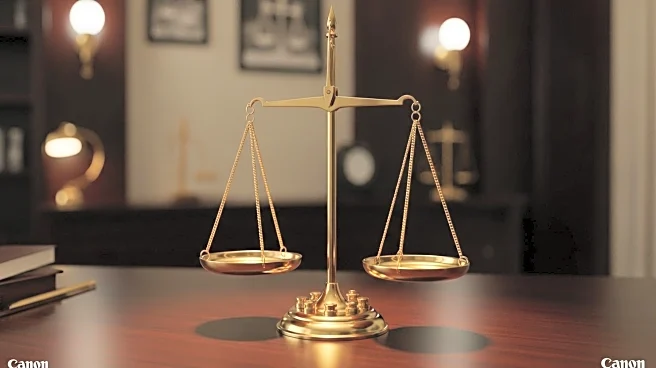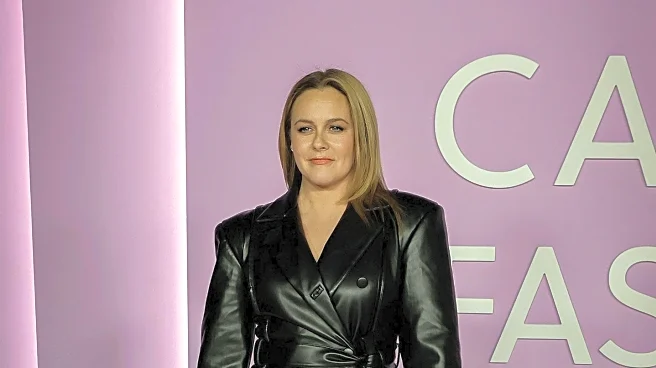What's Happening?
The Solicitors Disciplinary Tribunal has ruled that Claire Frances Gill, a partner at the law firm Carter-Ruck, was hired 'in furtherance of fraud' in connection with the cryptocurrency scheme OneCoin. Gill is being prosecuted by the Solicitors Regulation Authority (SRA) for allegedly issuing an improper legal threat on behalf of OneCoin and its mastermind, Ruja Ignatova. In 2017, Gill sent a legal threat to Jen McAdam, a victim of OneCoin, demanding the removal of videos detailing her experience of fraud. Despite McAdam's refusal to comply, no legal action was pursued. The tribunal's decision is based on evidence including court judgments against OneCoin and Ignatova, a worldwide asset freezing order, and Ignatova's fugitive status. Carter-Ruck maintains that neither the firm nor Gill had knowledge of OneCoin's fraudulent nature, asserting that Gill acted in good faith based on client instructions and advice from other legal professionals.
Why It's Important?
This ruling highlights the legal and ethical challenges faced by law firms when representing clients involved in fraudulent activities. The case underscores the importance of due diligence and ethical conduct in legal practice, particularly in high-stakes financial schemes like cryptocurrency. The tribunal's decision may influence public perception of legal accountability and transparency, potentially prompting reforms to prevent abusive legal practices known as Strategic Lawsuits Against Public Participation (Slapps). The outcome could impact the reputation of Carter-Ruck and similar firms, affecting their client relationships and business operations. It also raises questions about the role of legal professionals in facilitating or inadvertently supporting fraudulent activities.
What's Next?
The next hearing in Gill's case is scheduled for December, where further arguments and evidence will be presented. Gill has applied for the prosecution against her to be summarily dismissed, which will be considered in the upcoming proceedings. The case may lead to increased scrutiny of legal practices and calls for legislative action to address Slapps and other abusive legal tactics. Investigative journalists and transparency advocates are likely to continue pushing for reforms to ensure accountability and protect individuals from coercive legal threats.
Beyond the Headlines
The case against Gill and Carter-Ruck reflects broader concerns about the ethical responsibilities of legal professionals in the face of fraudulent schemes. It raises questions about the balance between client confidentiality and public interest, particularly when legal services are used to intimidate or silence critics. The tribunal's ruling may contribute to ongoing debates about the need for regulatory changes to prevent misuse of legal systems and protect freedom of expression.









